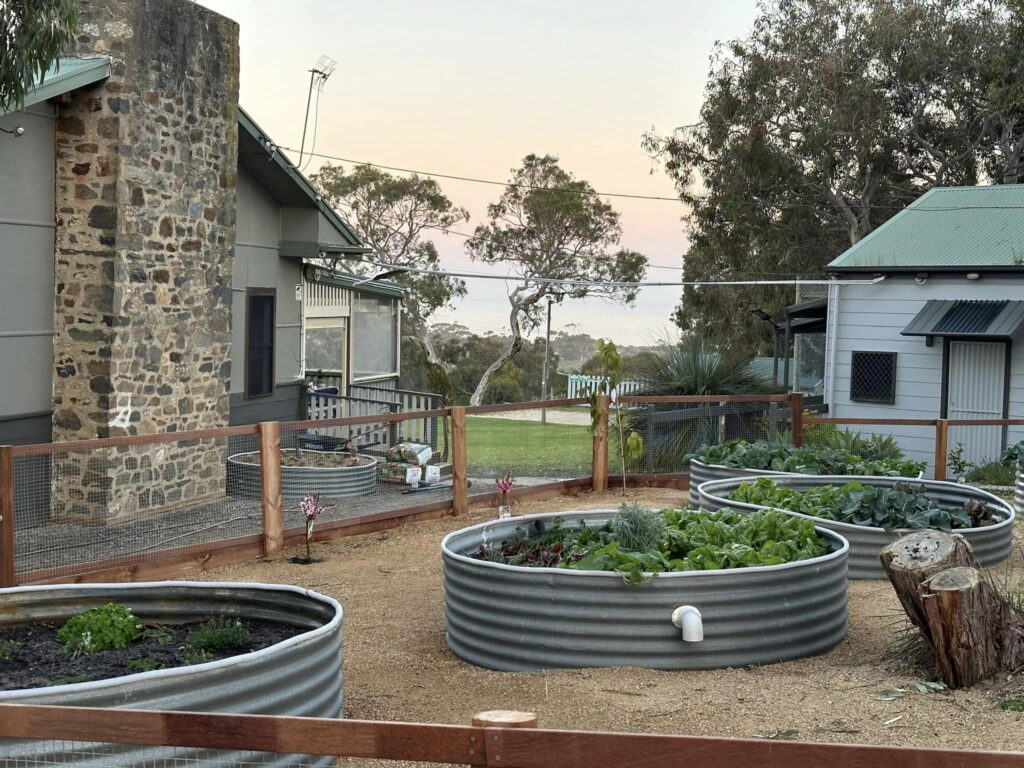Stop me if you’ve heard this one before: “We need to stay true to our history.” It’s a common sentiment, especially in organisations with a legacy as rich as Toc H. But here’s the thing—staying too focused on the past can stop us from seeing how much we can do today. It’s a balancing act, keeping the heart of our founder Tubby Clayton’s mission alive, while making sure we’re tackling the real challenges of the present.
As the CEO for the last six years, I’ve seen this balancing act firsthand. I understand the reverence for our history and the desire to stay connected to our roots. But I also know that if we’re going to continue making a difference, we need to evolve. That’s why I’ve worked hard to lead Toc H SA Inc into the future—restoring old buildings, creating services that support neurodivergent individuals, and building spaces like Cooinda Retreats that provide real support to those who need it most.
This blog series is a new chapter in our story. It’s a way for us to talk about not just what we’ve done, but why we do it—and how we’re making a difference today. So, whether you’ve been with Toc H for a long time or you’re just learning about us now, I invite you to follow along as we explore how Toc H is building on its past to create a brighter future for all.

The Challenge: Balancing Tradition and Progress
When an organisation is as steeped in history as Toc H, it’s easy to get caught up in the stories of the past. And why wouldn’t we? The vision of Tubby Clayton, born in the trenches of World War I, was revolutionary for its time. His passion for fostering community and helping those in need was what inspired so many to follow. But here’s the hard truth: what worked 100 years ago doesn’t automatically work today.
Focusing only on history means we risk missing out on the opportunities right in front of us. The world has changed, and the challenges we face today—neurodivergence, loneliness, mental health struggles—weren’t on the same radar back then. Yet these are real problems affecting people in our communities right now. If we want to stay true to the spirit of Toc H, we can’t just keep looking back; we have to be brave enough to step into the present and find new ways to serve.
That’s exactly what we’re doing here in South Australia. Yes, we honour the legacy of Tubby Clayton, but we’re also building on it, using his vision as a foundation for today’s work. Programs like our neurodivergent and wellbeing services My Turf, and the transformation of Cooinda Retreats, reflect our commitment to meeting modern needs with the same heart that started this movement.

The Transformation: Building the Future
In the last six years, Toc H South Australia has undergone an incredible transformation. What began as an organisation rooted in traditional community service has evolved into a centre of innovation, excellence, and care, addressing some of today’s most pressing challenges. While we’ve restored historic buildings, bringing them back to life, our real work extends far beyond the physical renovation.
One of the most significant shifts has been expanding our focus to support people experiencing loneliness, isolation, and those seeking personal and group growth. Our Cooinda Retreats, once a neglected site, has become a vibrant space for connection, healing, and transformation. It’s not only a sanctuary for individuals struggling, but also a place where groups can come together to learn, grow, and build stronger communities. Whether it’s for personal reflection, wellbeing workshops, school camps or team-building activities, Cooinda Retreats embodies the spirit of Toc H, creating environments where people can rediscover a sense of belonging and purpose.
Another key development has been the creation of My Turf—a specialised program designed to support neurodivergent individuals. While our traditional focus on children’s camps was valuable, it became clear that we needed to address the more complex and diverse needs of today’s world. Neurodivergence, including autism, ADHD, and other conditions, is better understood now, and these individuals deserve services that go beyond typical programming. My Turf offers tailored wellbeing services that are both compassionate and effective, creating safe spaces where neurodivergent individuals are understood and supported.
In future blogs, we’ll explore the impact of My Turf in greater detail and share stories of the lives it has touched.
